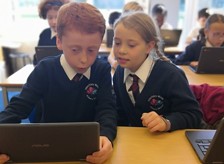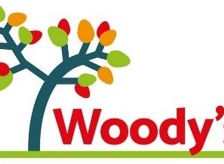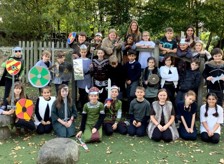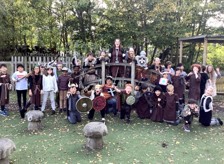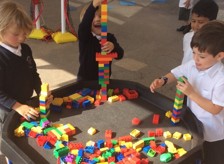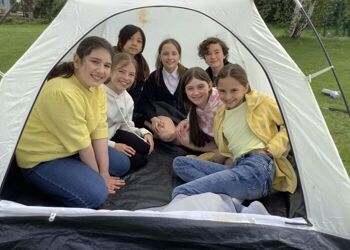 26th April 2024
26th April 2024English as an Additional Language (EAL)
We are delighted that our school represents a rich cultural diversity, with children that speak many different languages as well as English.
We use REMA Ethnic & Language Minority Support services where necessary which focuses on supporting identified pupils. The type and extent of intervention is negotiated and agreed to reflect the specific requirements of our school and the learning needs of our pupils.
How you can support your child:
Some of the strategies you can use:
- Use your first language at home. Research shows that children are remarkably talented in the way they can pick up more than one language, and they will have enough English input in school and at other times. Proficiency in the home language helps to build a solid foundation for success in an additional language.
- Read with your child. This may look different dependent on their learning style – sensory stories may be better with some children, traditional books with others. Picture books bring stories to life and help to start discussions. It’s a fantastic idea to read stories in your home language, too.
- Celebrate your heritage. Teach your children about their roots. Look at or explore objects and photos, try traditional foods, enjoy the cultural richness. When you can, send in photos or items that your child can share with the class.
Keep in touch. Tell us any important information, keep in touch with class staff, share news, and look out for school community events. If you or your child need help with any aspect of English, please come and speak to us. The class teacher will be pleased to offer advice and refer to our Inclusion Leader who oversees our EAL provision as necessary.
Good websites and EAL Parent support
Information for parents
- www.dgteaz.org.uk/resources/letters.htm Excellent site for standard letters for parents translated into a wide range of languages
- www.parentcentre.gov.uk a DfES website that provides leaflets and information about the English education system available in 14 different languages Useful websites for new arrivals – includes bilingual resources
- www.eurydice.org/Eurybase/framesset_eurybase.html information about education systems within Europe
- www.bbc.co.uk/languages – This BBC website features information about and courses on European languages. Go to the page www.bbc.co.uk/languages/other/quickfix to see and hear a few common words and phrases in 36 languages. Very useful if you want the class to learn welcoming phrases before a new pupil arrives.
Other translation websites
- www.itools.com/lang an excellent translation site providing on line dictionaries. On line text and web page translation available in Spanish, French, German, Portuguese, Italian and Norwegian. Translation service available for a much broader range of languages.
- www.world.altavista.com offers instant translation into many languages
- www.google.com/language_tools allows you to locate printed material in a broad range of languages with a subject search facility.
- www.yourdictionary.com background information on languages
- www.ilovelanguages.com similar to the above
- www.onlinenewspapers.com pupils can read the local newspaper from home in their first language
- www.mdbg.net/chindict translates English words into Chinese ideographs
- http://deall.ohio-state.edu/chan.9/cdict.htm provides links to web accessible resources for (Mandarin) Chinese such as bilingual word lists, translation tools and on line dictionaries
- www.hazar.com translation site for Turkish Websites for pupils – English games and stories
- www.learnenglish.org.uk/kids Games on a variety of basic vocabulary. Click on ‘topics’ and choose ‘games’. Try ‘paint it’ as well as others.
- www.manythings.org A variety of activities and games on page titled ‘Interesting things for ESL students’. Try ‘Football Quiz’, ‘Scrambled sentences’. • www.englishspace.ort.org More suitable for older pupils – provides quizzes on many grammar topics.
- www.bbc.co.uk/cbeebies/storycircle This site offers different stories with cartoons which you can listen to and read at the same time. Many stories are interactive.






